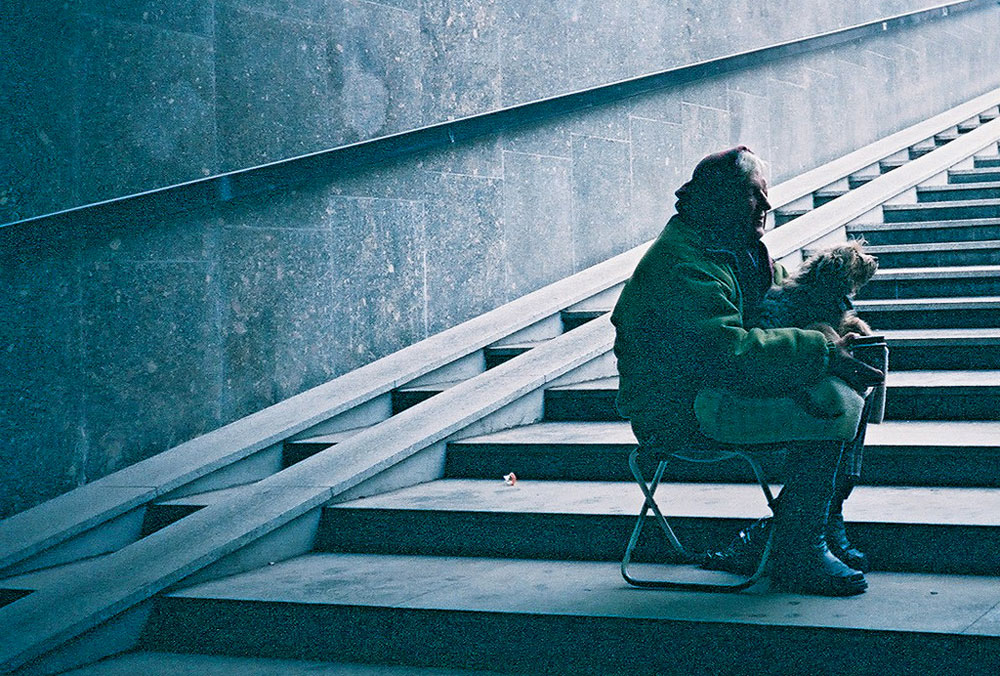
October 9, 2020; Gizmodo
Treating poor people with distrust and disdain is embedded in this country’s narrative so deeply that good portions of the nonprofit sector feel perfectly comfortable building large, expensive programs that are designed to reflect and reinforce this story of incapacity. Referring to people as “the underserved” is a great example of a problem created by undercapitalizing and over-pathologizing entire swaths of the population. This same idea harms the United States as Congress dithers ineffectually over releasing stimulus cash. It’s the story that says people will be enabled in some deleterious way if given the means to do what they need to make their lives whole.
The fight against that idea, which would lead to notions like a universal basic income, is counter-culture, but the facts are on its side. A small study’s preliminary results indicate that just giving a homeless person cash may be a big deal.
In 2018, the Canada-based Foundations for Social Change launched its New Leaf Project. Working among Vancouver, BC’s homeless community, they performed an experiment, giving a subset of a small group of unhoused men and women checks for CAN$7,500 (equivalent to US $5,719) with no strings attached and some assistance in learning to manage their lives more effectively. (A control group received no money or additional support.) After one year, the results are very promising; those who got money “moved into stable housing faster,” “spent fewer days homeless,” and “retained over $1,000 in savings through 12 months.” They spent more on food, clothing, and rent and less on alcohol, cigarettes and drugs. In the end, they were less reliant on the “shelter system of care, resulting in cost savings to society.”
Sign up for our free newsletters
Subscribe to NPQ's newsletters to have our top stories delivered directly to your inbox.
By signing up, you agree to our privacy policy and terms of use, and to receive messages from NPQ and our partners.
The check made a “huge” impact in the life of one recipient, whose comments were shared by the research team. “I was able to do a lot of things that I couldn’t do before,” he says. “It has changed my ability to make proper choices. If I had not received the cash transfer, I wouldn’t be able to move out. Wouldn’t be able to get my car back on the road. None of that.”
Jiaying Zhao, an associate professor of psychology at the University of British Columbia and lead researcher of the project, in comments reported by Gizmodo, saw the level of impact as standing in defiance of our stereotypes about homeless people. “Obviously, there’s a common intuition that if you could give homeless people cash, they’re going to squander it on drugs. But that was not the case here…people might think that if you’re homeless, that means you have severe substance use issues, you have severe mental health issues. But that’s not true. Only 20 to 30 percent of homeless people have severe substance use or mental health issues.”
The New Leaf Project’s premise mirrors the thinking that brought Housing First to the forefront. As UCLA-based clinical psychologist Sam Tsemberis, founder and CEO of the Pathways Housing First Institute, explained to Mother Jones in 2015, “Why not just give them a place to live and offer them free counseling and therapy, health care, and let them decide if they want to participate? Why not treat chronically homeless people as human beings and members of our community who have a basic right to housing and health care?”
Kori Kanayama, writing for NPQ about homelessness in Los Angeles, observed that the “the systemic and protracted nature of homelessness raises a question—what other roles besides providing services and housing and advocating for vulnerable people might nonprofits play to get the city moving towards visibly affecting the problem?” If the New Leaf Project’s preliminary results are confirmed as the effort expands and the research deepens, we may have an answer: a societal conundrum solved by something as simple and as profound as a check.—Martin Levine and Ruth McCambridge













